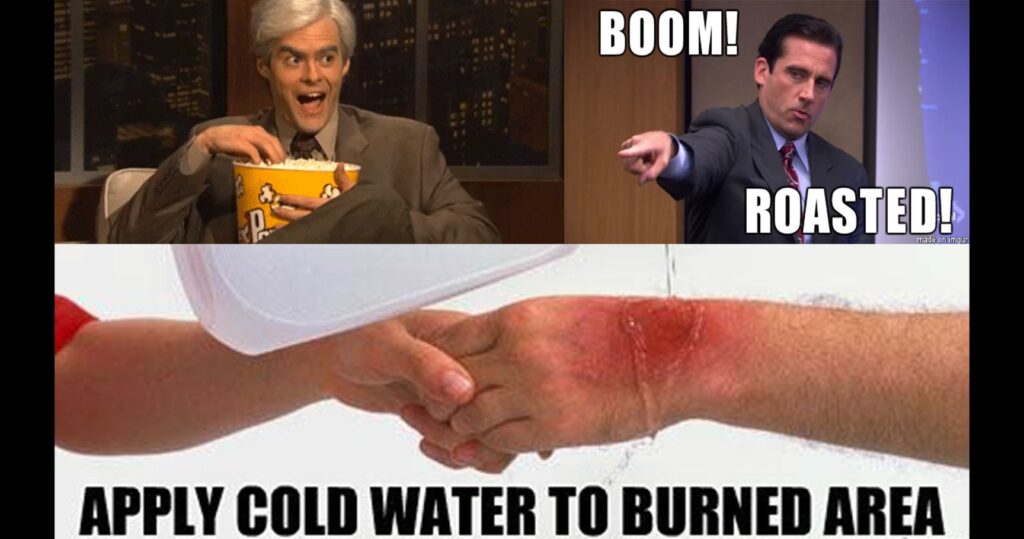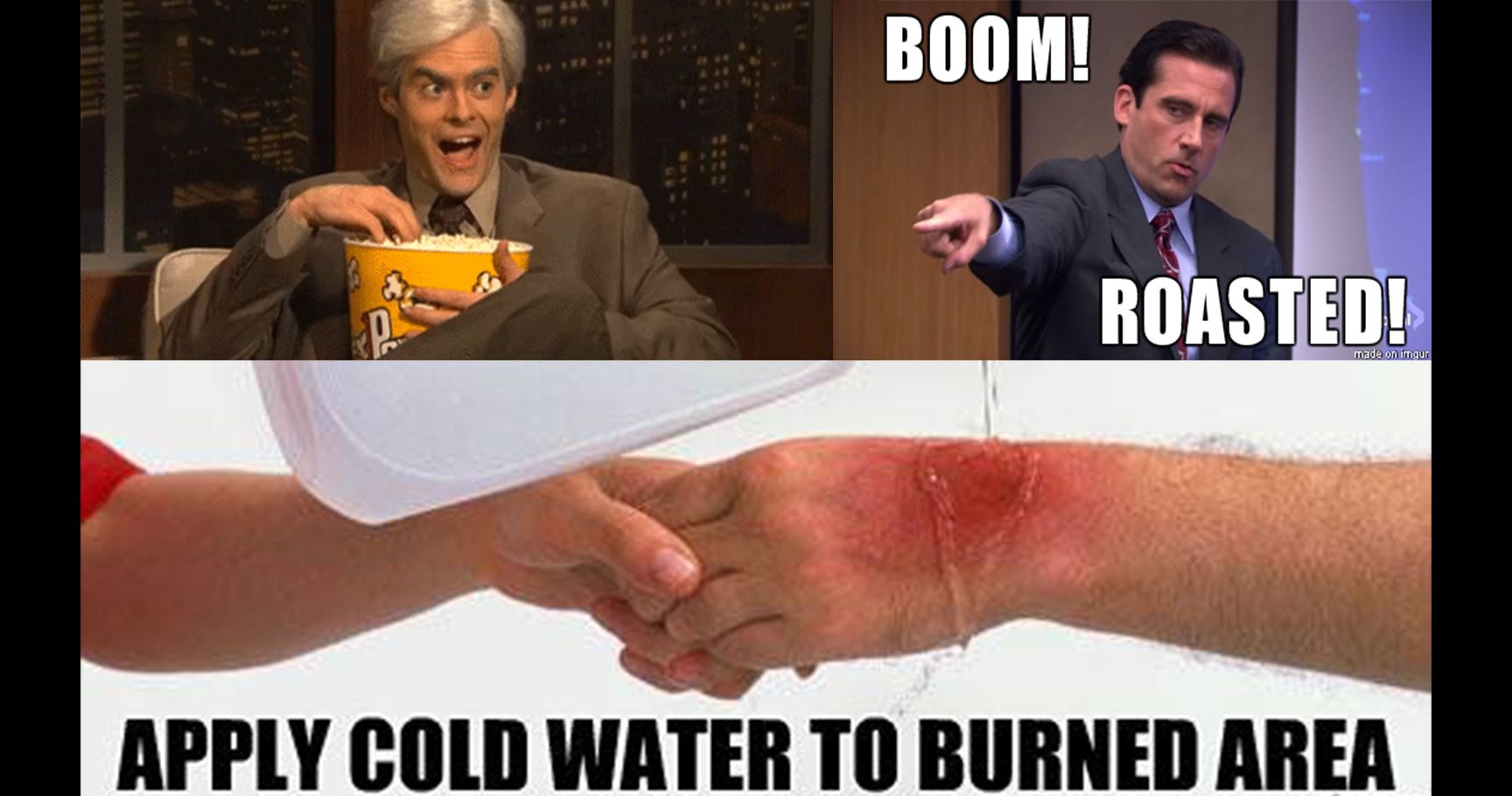
Roast Me Meme: Exploring the Internet’s Love for Self-Deprecating Humor
The internet, a vast landscape of cat videos, political debates, and questionable fashion choices, has also cultivated a unique corner dedicated to self-deprecation: the “roast me” meme. This phenomenon, popularized on platforms like Reddit and Twitter, invites strangers to unleash their wittiest and often brutally honest critiques on submitted photos. But what drives people to willingly subject themselves to such public scrutiny? And what does the enduring popularity of the roast me meme say about our relationship with humor, self-esteem, and online interaction?
The Anatomy of a Roast Me Post
The basic premise is simple. An individual posts a photo of themselves, often holding a sign with the words “Roast Me” or a variation thereof, to a dedicated online community. The comments section then transforms into a battleground of insults, jokes, and observations, ranging from lighthearted ribbing to savage takedowns. The subjects of these roasts are expected to take the criticism in stride, often responding with humor and self-awareness. The appeal lies in the unpredictable nature of the roasts and the potential for both the roaster and the roastee to showcase their comedic talents.
The Psychology Behind the Roast
Why would anyone actively seek out negative comments about their appearance or personality? Several psychological factors may be at play. For some, it’s a form of attention-seeking, albeit a risky one. The roast me meme provides a platform to engage with a large audience and potentially gain viral fame, even if it comes at the expense of their ego. Others may view it as a form of self-validation. By surviving the onslaught of insults, they prove their resilience and ability to laugh at themselves. This can be particularly appealing for individuals with low self-esteem, who may find a strange sense of empowerment in confronting their insecurities head-on. Some might also see it as a challenge, a way to test their wit and composure in the face of adversity. The ability to deflect insults with humor can be a sign of intelligence and emotional maturity.
The Role of Humor as a Coping Mechanism
Humor, particularly self-deprecating humor, has long been recognized as a coping mechanism for dealing with stress and anxiety. By making light of their flaws and imperfections, individuals can distance themselves from negative emotions and gain a sense of control over their situation. The roast me meme provides a structured environment for this type of humor, allowing participants to explore their insecurities in a playful and often cathartic way. [See also: The Therapeutic Power of Laughter]
The Dark Side of the Roast
While the roast me meme can be a source of entertainment and even personal growth, it also has its dark side. The anonymity of the internet can embolden users to cross the line from playful banter to outright cruelty. Comments can become deeply personal and hurtful, targeting sensitive areas and potentially triggering feelings of shame and inadequacy. It’s crucial to remember that behind every photo is a real person with real emotions. The potential for cyberbullying and online harassment is a serious concern within the roast me meme community. It’s important for participants to be mindful of the impact of their words and to avoid making comments that are deliberately malicious or offensive.
Setting Boundaries and Practicing Self-Care
Individuals who participate in the roast me meme should be aware of the risks involved and take steps to protect their mental health. Setting clear boundaries and being prepared to disengage from the conversation if it becomes too overwhelming is essential. It’s also important to remember that the opinions expressed in the comments section are just that – opinions. They don’t define your worth or value as a person. Practicing self-care activities, such as spending time with loved ones, engaging in hobbies, and seeking professional help if needed, can help to mitigate the negative effects of online criticism. The roast me meme should be approached with caution and a healthy dose of self-awareness.
The Evolution of the Roast Me Meme
The roast me meme has evolved over time, adapting to new platforms and incorporating new trends. What started as a niche phenomenon on Reddit has spread to other social media sites, including Twitter, Instagram, and TikTok. The format has also become more sophisticated, with users incorporating elaborate props, costumes, and backstories into their photos to elicit more creative and humorous roasts. The rise of influencer culture has also played a role, with some celebrities and online personalities participating in roast me meme challenges to engage with their fans and demonstrate their sense of humor. This increased visibility has further normalized the practice and contributed to its enduring popularity.
From Online to Offline: The Roast in Popular Culture
The concept of the roast has also permeated mainstream popular culture, with celebrity roasts becoming a staple of television programming. These events feature comedians and other public figures delivering humorous insults at the expense of the guest of honor. While these roasts are typically more scripted and polished than the spontaneous interactions of the roast me meme, they share the same underlying principle: finding humor in self-deprecation and public humiliation. [See also: The History of Comedy Central Roasts]
The Enduring Appeal of Self-Deprecating Humor
The enduring popularity of the roast me meme speaks to our complex relationship with humor, self-esteem, and online interaction. While it can be a risky and potentially harmful activity, it also offers a unique opportunity for self-expression, social connection, and comedic creativity. By embracing our flaws and imperfections, we can find common ground with others and build a sense of community. The roast me meme, at its best, is a testament to the power of laughter to heal, connect, and empower us.
Navigating the Roast Me Landscape Responsibly
Ultimately, the roast me meme is a reflection of our society’s evolving relationship with online humor and self-expression. While engaging in this trend, remember the importance of responsible online behavior. Before posting, consider the potential impact on your mental health and the potential for others to be negatively affected. The internet is a powerful tool, and its use should be approached with thoughtfulness and respect. The roast me meme can be a source of amusement and connection, but it’s crucial to prioritize well-being and ethical considerations in the online space. The goal should be to create a space where humor is used for connection, not division, and where self-deprecation is a source of empowerment, not shame. The roast me meme has a place in the internet landscape, but its future depends on the users’ ability to navigate it responsibly, fostering a culture of respect and understanding. The roast me meme continues to thrive, showcasing our collective fascination with self-deprecation and the power of humor in the digital age. The roast me meme highlights the complex interplay between vulnerability, humor, and online community. The roast me meme provides a platform for both self-expression and potential harm.
Conclusion
The roast me meme is a fascinating phenomenon that reveals much about our online culture. It highlights our ability to find humor in the face of vulnerability, and our willingness to engage in self-deprecation as a means of connection. However, it also serves as a reminder of the potential dangers of online interaction, and the importance of responsible online behavior. As the internet continues to evolve, it’s crucial to approach trends like the roast me meme with a critical eye, prioritizing mental health and ethical considerations. The roast me meme is not just a trend; it is a reflection of our society.

